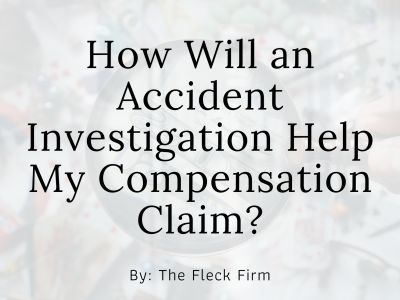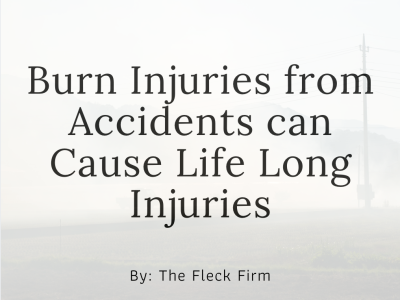When you hear of PTSD, you may think of what many combat veterans deal with after returning from war. But many going through a wide range of trauma, including motor vehicle accidents (MVA), may suffer from it too.
What is PTSD?
PTSD develops in some who experienced a scary, shocking, or dangerous event, according to the National Institute of Mental Health. We naturally feel fear during and after a traumatic event like a car accident, medical treatment for injuries, and the pain and anxiety of recovery. If you continue to feel stressed or frightened long after the event, you may have PTSD.
These feelings are short-lived for most of us. For others, PTSD symptoms:
- Usually start within three months of the incident but may begin years afterward
- Must last more than a month and interfere with relationships or work to meet the guidelines for a diagnosis
- Include flashbacks (reliving the trauma, causing your heart to race or you may start to sweat), nightmares, disrupted sleep, and frightening thoughts
- Include difficulty remembering the accident, negative thoughts about yourself, blaming yourself for the accident, anger, lost interest in enjoyable activities, alienation from friends and family
- Can start due to thoughts, feelings or may be triggered by words, objects, or situations reminding you of the event, such as driving at the accident site or being at the hospital where you were treated
- In severe cases can include panic disorder, depression, substance abuse, and suicidal feelings
- Can be felt by children and adults
If you suffer from these symptoms, contact a mental health professional.
Other attorneys take contingent fees of 33% to 50% of your settlement.
We want you to keep more of your money.
Our contingent fee is only 30% on cases settled prior to filing suit.
How is PTSD Related to Motor Vehicle Accidents?
MVAs are the most common traumatic event men experience (25%) and the second most common traumatic experience by women (13%) in the US, according to the American Academy of Experts in Traumatic Stress. Survivors of severe MVAs may suffer several mental health issues, including PTSD, depression, and anxiety, but most do not. Studies estimate about 9% of MVA survivors develop PTSD.
Factors that make MVA-related PTSD more likely include:
- Pre-accident issues such as a poor ability to cope with prior trauma, mental health problems, and poor social support
- Severe physical injury and whether it’s potentially life-threatening
- Slow recovery from injuries, lack of support from friends and family, little engagement with work and social activities
Like any physical or mental health issue related to your accident, others can only help you if they know it’s a problem. You shouldn’t be ashamed of your feelings. You should speak up to get the help you need.
How is PTSD Treated?
The most common treatments for PTSD are medications, psychotherapy ( or talk therapy), or combination. Your PTSD is unique, so you and your mental health professional will need to find what works best for you.
- Antidepressants may help control sadness, worry, and anger. Other medications may address sleep problems and nightmares
- Psychotherapy involves talking to a mental health professional, one-on-one or in a group with others dealing with PTSD. Talk therapy treatment normally lasts six to 12 weeks but may go longer
Support from your family and friends is an essential part of recovery. Those with PTSD should be encouraged to keep as much of their pre-accident life as possible.
Have You Been Injured in a Car Accident in Kentucky and Need an Attorney?
Were you injured in a car accident and are dealing with emotional challenges because of the trauma you endured? Call The Fleck Firm to schedule a free consultation at (270) 446-7000. We’ll talk about the accident, your injuries, the law, and your best options to proceed. Insurance companies have lawyers. You should have one too.








